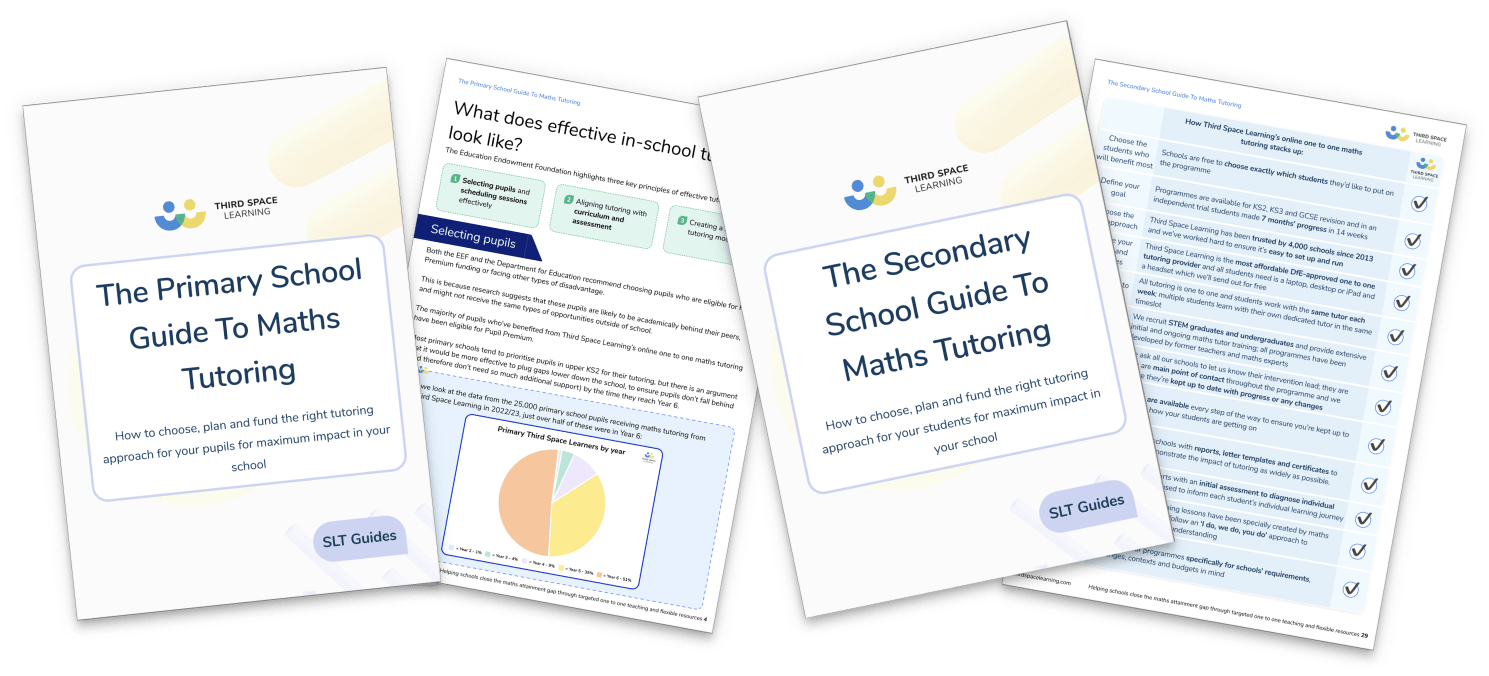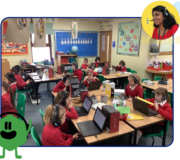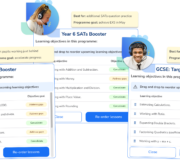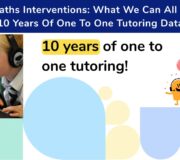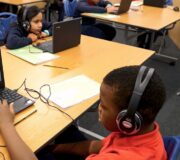How Third Space Learning Safeguard Your Students
Tutoring children means we have two important safeguarding roles to play. We must ensure that our tutors are suitable individuals to work with children and do not cause them harm. We also need our tutors to recognise, respond to, and report any safeguarding disclosures that a child makes to them.
In order to comply with these safeguarding responsibilities, we apply the best practices that are adopted by schools. This blog will outline all the safeguarding practices we adhere to in order to prioritise the welfare of children.
Ensuring our tutors are safe
The first level of protection we have is ensuring that we do not recruit anyone who may pose a danger to children, following the guidance listed in Section 3 of Keeping Children Safe in Education.
We ensure that our tutors have an enhanced DBS check. This includes a check to ensure they are not on the Children’s Barred List, a Teaching Prohibition Check, two proofs of ID, and two references.
We verify our tutors by carrying out a face-to-face interview with someone trained in safer recruitment and we also check their career history. We also ensure our tutors, who are based in Sri Lanka and India, have a clean Police Clearance Certificate, which is the document that the Home Office recommends employers check as a local equivalent to the DBS.
The Ultimate Guide to Maths Tutoring
Learn how to choose, plan and fund the right tutoring approach for your students for maximum impact. Includes individual primary and secondary guides.
Download Free Now!Having worked hard to ensure our tutors have no history of causing harm to children and will behave appropriately with children, we then make sure we prepare our tutors to be good and safe tutors. They undergo extensive training including dedicated safeguarding training, aligned with Keeping Children Safe in Education, Prevent Duty guidance, and our safeguarding policy.
Once we certify that our tutors are ready to begin tutoring, they have to pass a final mock tuition session. This will be with a trainer, who is either one of our UK-trained ex-teachers or has been trained by one of our UK-trained ex-teachers.
Finally, once each tutor starts sessions, we continue to monitor and review them for safeguarding.
We do this through two mechanisms:
- We proactively check a random sample of sessions; last year, this was 4%.
- We reactively check sessions that have been flagged either by the school, the tutor themselves, or our automated alerts (for incidents such as a negative pupil comment after the session).
We have other safeguards in place, such as not allowing the tutor to know the family name or school name of the student, and only being able to contact them through our secure platform and only at the times agreed with the school.
Dealing with disclosures
It is much more likely that we will get involved in safeguarding because a student makes a safeguarding disclosure than because of a harmful or abusive action taken by one of our tutors. However, as outlined, we always take precautions to ensure our tutors are safe. Here’s how we deal with disclosures:
- Recognising: Our safeguarding training teaches our tutors what signs to listen out for, including physical abuse, neglect, emotional abuse, child-on-child abuse, serious violence, criminal exploitation, and more.
- Responding: Our tutors practise responding to children, asking open questions, and reassuring the child that they have done nothing wrong, that we have to let their teacher know about these concerns and that we will try to help out.
- Reporting: We have a well-established reporting process called the Red Flag process, whereby tutors submit the details of a safeguarding incident to our UK-based Customer Support Team. The UK team then decide whether the school needs to be contacted immediately by phone or if we should email them.
Our role vs the role of the school
We believe this school-first approach is best in most circumstances because the pupil’s teacher is much better placed to investigate any child protection concerns. They have a better relationship with the pupil, have more context than a tutor can gain over a voice-only internet connection, and will be better able to provide the child with an encouraging environment in which to talk.
Furthermore, in the event that the school decides the local authority or police need to be involved, then they are likely to already know the best people to contact.
Therefore, we will pass on our tutor’s safeguarding concern and then wait for the school to let us know whether they need anything else from us. This could include asking for the audio recording of the session or asking to speak to the tutor directly.
We always ensure that our safeguarding responsibilities are adhered to and in line with guidance so that we prioritise the welfare and well-being of children.
Read more: The 12 Most Important Ofsted Safeguarding Questions and Answers [2024]
DO YOU HAVE STUDENTS WHO NEED MORE SUPPORT IN MATHS?
Every week Third Space Learning’s maths specialist tutors support thousands of students across hundreds of schools with weekly online maths tuition designed to plug gaps and boost progress.
Since 2013 these personalised one to one lessons have helped over 150,000 primary and secondary students become more confident, able mathematicians.
Learn about our experience with schools or request a personalised quote for your school to speak to us about your school’s needs and how we can help.

